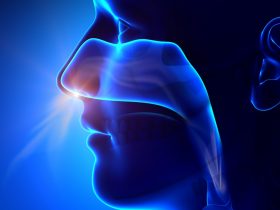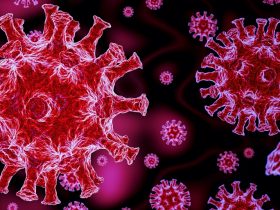At the 2023 American Rhinologic Society, Combined Otolaryngology Spring Meeting (ARS-COSM) held in Boston, Massachusetts, May 3-5, a multicenter research team from Harvard Medical School and Brigham & Women’s Hospital presented their study titled “Association of Sinus Mucus Cytokine Levels with SNOT-22, UPSIT and LK Scores in Patients with Chronic Rhinosinusitis (CRSwNP)”.
The 22-item Sino-Nasal Outcome Test (SNOT-22) and Lund-Mackay (LK) scores are validated patient-reported outcomes measures in chronic rhinosinusitis (CRS). Mucus cytokines have been reportedly linked to the baseline metrics of quality-of-life (QoL) and olfactory function in patients with CRS. However, their potential utility in predicting postoperative outcomes has not been evaluated. In the present study, the study investigated whether the levels of sinus mucus cytokines correlate with UPSIT, SNOT-22, and LK Scores in CRSwNP, CRSsNP, and AERD patients.
The prospective observational study enrolled 143 patients between 19 and 88 years of age. Patients with biologic therapy use, immunodeficiency, diagnosed with cystic fibrosis, acute rhinosinusitis, systemic corticosteroids, and positive pathological sinonasal culture at the time of mucus collection were excluded from the study.
In addition, the study outcome measures were cytokine values, UPSIT, SNOT-22, and LK scores. Of the 143 patients, 108 (76%) were diagnosed with CRSwNP, 23 (16%) were identified with CRSsNP, and 12 (8%) patients were diagnosed with AERD.
According to study results, SNOT-22 scores increased with specific cytokines, including TNF-, IL-13, IL-5, CCL2, and CXL8. Furthermore, no correlation of LK scores with cytokine values was observed. Besides, it was found that high IL-13 is associated with worse UPSIT scores, while high CCL2, and high IL-5 were associated with worse SNOT-22 and UPSIT values. Besides, TNF- and high CXL8 were reportedly associated with worse SNOT-22 scores.
“Cytokine levels in sinus mucus directly correlate with both olfactory dysfunction as well as validated subjective measures of worsened sinonasal quality of life,” the authors added.
The study concluded that while endotypes reflect the underlying pathophysiology of CRS and the patient experience, identifying such endotypes in CRS will help in counseling the patients and better managing their disease in the near future.
Reference:
Yu S; Chiang S; Bergmark R; et al. Association of Sinus Mucus Cytokine Levels with SNOT-22, UPSIT and LK Scores in Patients with Chronic Rhinosinusitis. ARS-COSM, May 4-5, 2023.







